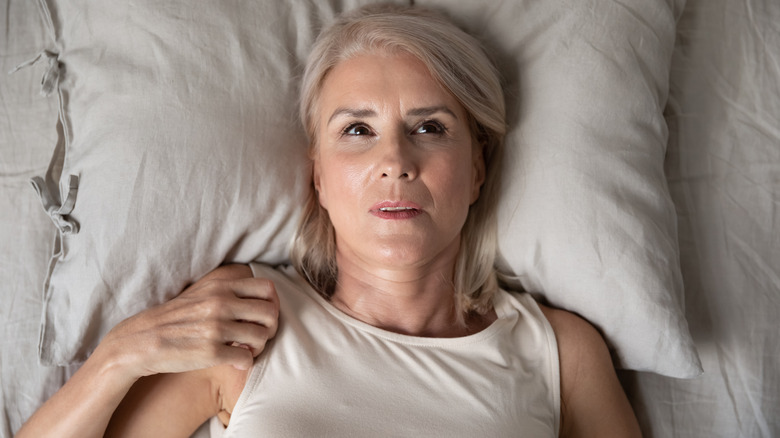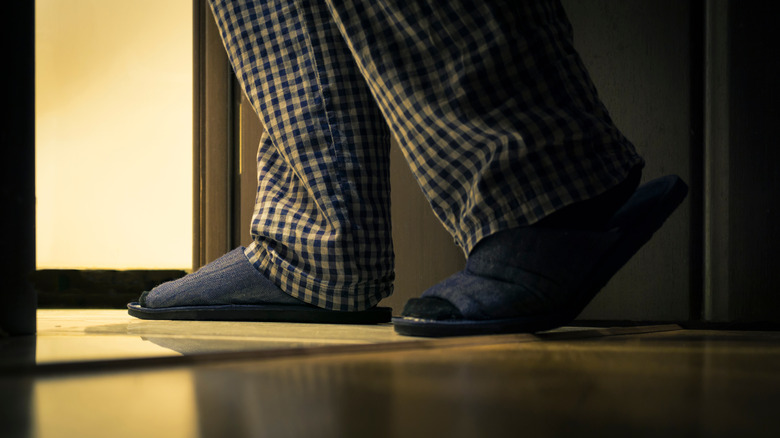How The Way You Sleep May Impact Your Bladder
People with an overactive bladder usually have disturbed sleep. If you have this condition, you may experience restlessness and insomnia all through the night because of the consistent urge to get up and pee (per Mayo Clinic). Often, this need to urinate is uncontrollable and could make it difficult for you to have a good, deep sleep. As a result, it can wreck both your physical and mental well-being. You may be forced to stay awake, have difficulty falling asleep, and even experience low productivity throughout the day.
Scientists often share various natural ways to deal with a weak bladder. For starters, you can try doing Kegel exercises, according to WebMD. Dr. Melody Denson, a urologist, states that Kegel exercises have proven effective in developing resistance against overactive bladders. They can improve your control over the urination urge and help you hold it while you make it to the toilet. Similarly, experts at Cleveland Clinic suggest that those who have severe nocturia (when you repeatedly have to get up at night to urinate) should avoid drinking too many fluids before bedtime. Additionally, it's best to reduce sodium intake as it increases kidney activity.
But what about your sleep position? Could the way you sleep affect your bladder as well?
How sleep position affects the bladder
Healthline advises that another way to gain more control over urinary incontinence is by changing your sleep position. In particular, they recommend side sleeping.
One reason is because when you are lying in bed, it's possible that your sleep position might put extra pressure on the bladder. This can lead to an increased need to pee. Side sleeping can relieve this pressure.
According to Healthline, urinary incontinence is also worse in those who have sleep apnea, a common sleep disorder that affects breathing while sleeping. It may cause a lack of oxygen in tissues and trigger the kidneys to release more water (via Cleveland Clinic), causing an increased need to urinate. Side sleeping has various benefits for the body, including its ability to manage sleep apnea, per Sleep Foundation. They reveal that side sleeping helps keep the air pathways open, helping you breathe better throughout the night.
Thus, if you have both sleep apnea and an overactive bladder, you may want to consider sleeping on your sides. As a result, you may have a decreased urgency to urinate and enjoy a better night's rest.


